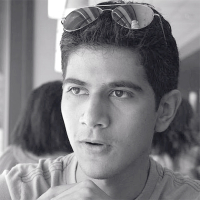Last week, The New York Times dropped a comic book bombshell—Ta-Nehisi Coates, an acclaimed author and writer for The Atlantic, would be writing a year-long Black Panther story for Marvel with artist Brian Stelfreeze.
It’s a surprising but perfect choice, one that will doubtless result in interesting comics that will in turn attract new readers.
But who is the Black Panther?
Stan Lee and Jack Kirby created the Black Panther, like much of the Marvel Universe, in the pages of Fantastic Four (despite what that movie would have you believe, a lot happened in that comic). In his very first appearance, he singlehandedly outsmarts and outfights the entire team, which established The Black Panther as A Big Deal. But even that is secondary to his actual, real-world importance: He’s the first black superhero, and a fascinating one at that.

Born T’Challa, son of T’Chaka, The Black Panther isn’t a traditional superhero, but the name given to the king of the fictional African nation of Wakanda. In the Marvel Universe, Wakanda is one of the most technologically advanced nations in the world, home to rich deposits of comic book wonder-metals like vibranium. It is, essentially, a thought experiment: Once, long ago African nations led the world in learning and culture. Then those nations were plundered and dismantled for the benefit of European trade—but what if one nation resisted all that?
Thus, T’Challa, The Black Panther, is something entirely different from other Marvel heroes: He’s a king. This sets him apart; even when he’s working alongside other heroes like The Avengers, he’s aloof, and has his people’s interests to look after. At times this puts him at odds with those heroes—or entire governments.
When you take all of these disparate elements into consideration, the sheer depth and variety of stories that become possible is staggering. Black Panther stories can (and have) run the gamut from biting social satire to political intrigue to sprawling historical drama. Unfortunately, this potential is rarely made good on.
Superhero comics haven’t had the best track record when it comes to representation, both on the page and in editorial offices at leading publishers Marvel and DC. This has left minority characters, even historically important ones like Black Panther, out in the cold, as editors struggled to make the character as big a mainstream hit as Spider-Man or the X-Men, while occasionally—almost accidentally, really—producing some fantastic stories that few people read when they were published.
Brightest among all-too-brief moments of brilliance is the acclaimed 1998 Black Panther series written by Christopher Priest with art by Mark Texiera, et al, which doubles down on social satire while introducing the character to a new generation of readers. Sharply written with Tarantino-esque nonlinear structure, sharp dialogue, and distinctive art, Priest’s tenure telling Black Panther stories is one of the best ways to get acquainted with the character, as much of the story is initially told through the eyes of milquetoast government liaison Everett K. Ross. (You can and should read this series).

Even if you aren’t the type that’s given to diving deep into comic book history, Marvel will likely be working very hard over the next year to make sure you do. In addition to Coates’s new comic, the character is scheduled to make his big-screen debut next spring in Captain America: Civil War, played by Chadwick Boseman, who most recently portrayed Godfather of Soul James Brown in the biopic Get On Up. This is doubtless a shrewd bit of corporate leveraging meant to get filmgoers intrigued by the character, since he’s scheduled to headline his own film on July 6, 2018.
That’s all you really need to know to familiarize yourself with the character. But there is something you should understand.
The Black Panther, like just about everything even tangentially related to race in America, is perpetually misunderstood. This is something Evan Narcisse articulates this wonderfully over at Kotaku while exploring what makes the aforementioned Christopher Priest version of the character compelling.
“Priest—who was the first black person to hold an editorial position at Marvel back in the 1970s and 1980s—focused on the Panther’s role as sovereign leader of his people,” writes Narcisse. “He shows that tensions that spring from prejudice cut across borders of many different realities, no matter how powerful a superhero monarch is. T’Challa continually runs up against other people’s perceptions of him.”
The tragedy of the black experience in America is one of agency, of a country that purports to be a land of opportunity but fosters a culture where the personhood of minorities can be stymied at every turn. It is one that we do not want to address, and are not comfortable acknowledging.
At their best, though, Black Panther stories acknowledge this. They acknowledge that the world—that America—is not a level playing field. They acknowledge that there is a whole mess of people who would want a man like T’Challa to shut up, to go away, to not be a problem for them. He doesn’t, though. Because he’s a hero, and heroes don’t just fight injustice with their fists.
They demand its respect.






